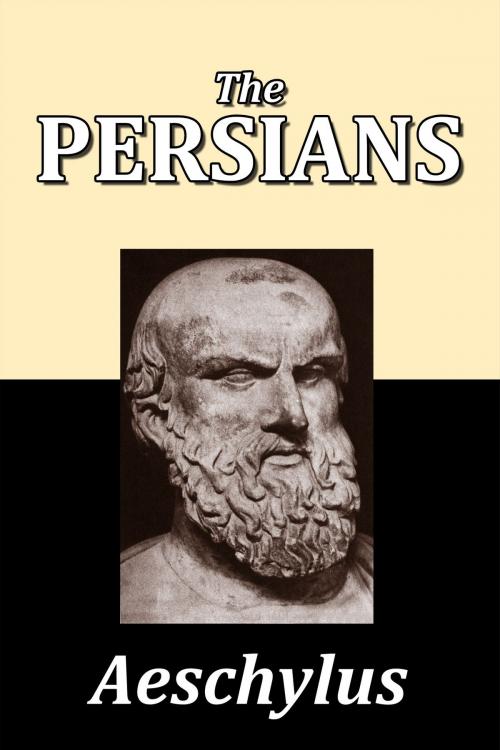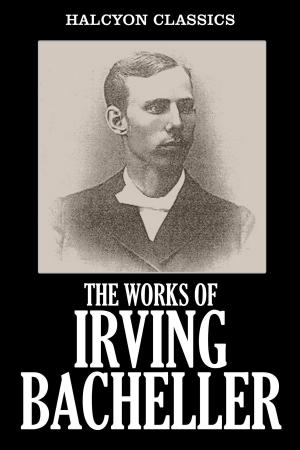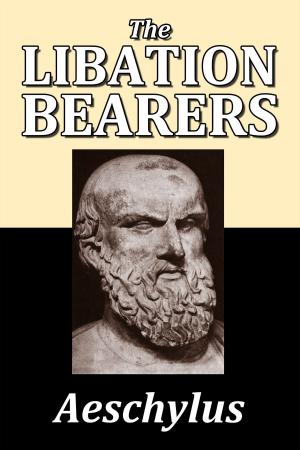| Author: | Aeschylus | ISBN: | 1230000127389 |
| Publisher: | Halcyon Press Ltd. | Publication: | April 24, 2013 |
| Imprint: | Language: | English |
| Author: | Aeschylus |
| ISBN: | 1230000127389 |
| Publisher: | Halcyon Press Ltd. |
| Publication: | April 24, 2013 |
| Imprint: | |
| Language: | English |
Xerxes, son of Darius and of his wife Atossa, daughter of Cyrus, went forth against Hellas, to take vengeance upon those who had defeated his father at Marathon. But ill fortune befell the king and his army both by land and sea; neither did it avail him that he cast a bridge over the Hellespont and made a canal across the promontory of Mount Athos, and brought myriads of men, by land and sea, to subdue the Greeks. For in the strait between Athens and the island of Salamis the Persian ships were shattered and sunk or put to flight by those of Athens and Lacedaemon and Aegina and Corinth, and Xerxes went homewards on the way by which he had come, leaving his general Mardonius with three hundred thousand men to strive with the Greeks by land: but in the next year they were destroyed near Plataea in Boeotia, by the Lacedaemonians and Athenians and Tegeans. Such was the end of the army which Xerxes left behind him. But the king himself had reached the bridge over the Hellespont, and late and hardly and in sorry plight and with few companions came home unto the Palace of Susa.
Aeschylus (c. 524 BC – c. 455 BC) was the first of the three ancient Greek tragedians whose work has survived, the others being Sophocles and Euripides, and is often recognized as the father of tragedy. He was born at Eleusis, near Athens, the son of Euphorion. Before he was twenty-five he began to compete for the tragic prize, but did not win a victory for twelve years. He spent two periods of years in Sicily, where he died in 456, killed, it is said, by a tortoise which an eagle dropped on his head. Though a professional writer, he did his share of fighting for his country, and is reported to have taken part in the battles of Marathon, Salamis, and Plataea. Of the seventy or eighty plays which he is said to have written, only seven survive, and the authorship of PROMOTHEUS BOUND is disputed.
Xerxes, son of Darius and of his wife Atossa, daughter of Cyrus, went forth against Hellas, to take vengeance upon those who had defeated his father at Marathon. But ill fortune befell the king and his army both by land and sea; neither did it avail him that he cast a bridge over the Hellespont and made a canal across the promontory of Mount Athos, and brought myriads of men, by land and sea, to subdue the Greeks. For in the strait between Athens and the island of Salamis the Persian ships were shattered and sunk or put to flight by those of Athens and Lacedaemon and Aegina and Corinth, and Xerxes went homewards on the way by which he had come, leaving his general Mardonius with three hundred thousand men to strive with the Greeks by land: but in the next year they were destroyed near Plataea in Boeotia, by the Lacedaemonians and Athenians and Tegeans. Such was the end of the army which Xerxes left behind him. But the king himself had reached the bridge over the Hellespont, and late and hardly and in sorry plight and with few companions came home unto the Palace of Susa.
Aeschylus (c. 524 BC – c. 455 BC) was the first of the three ancient Greek tragedians whose work has survived, the others being Sophocles and Euripides, and is often recognized as the father of tragedy. He was born at Eleusis, near Athens, the son of Euphorion. Before he was twenty-five he began to compete for the tragic prize, but did not win a victory for twelve years. He spent two periods of years in Sicily, where he died in 456, killed, it is said, by a tortoise which an eagle dropped on his head. Though a professional writer, he did his share of fighting for his country, and is reported to have taken part in the battles of Marathon, Salamis, and Plataea. Of the seventy or eighty plays which he is said to have written, only seven survive, and the authorship of PROMOTHEUS BOUND is disputed.










![Cover of the book The Emerald City of Oz by L. Frank Baum [Wizard of Oz #6] by Aeschylus](https://www.kuoky.com/images/2013/may/300x300/1230000134337-UsN0_300x.jpg)


![Cover of the book Ozma of Oz by L. Frank Baum [Wizard of Oz #3] by Aeschylus](https://www.kuoky.com/images/2013/may/300x300/1230000133739-ytIv_300x.jpg)

